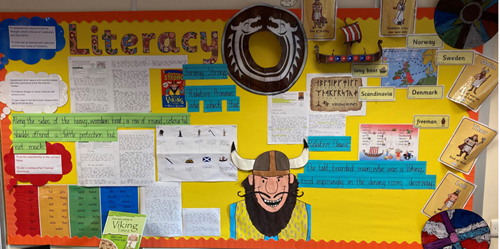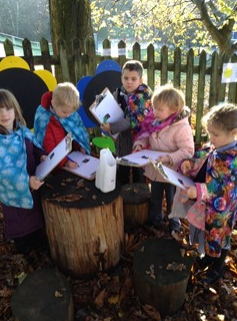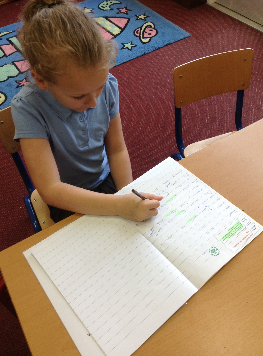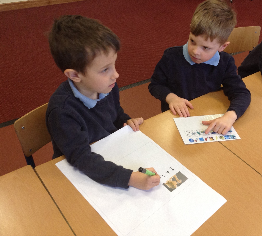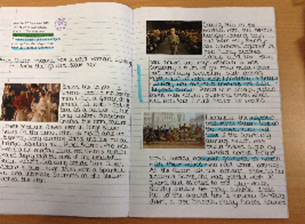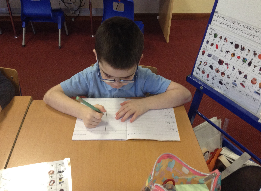English
At William Reynolds Primary school we recognise the importance of English. By the end of Year 6, we intend our children to have developed a love of writing and to be able to write effectively for purpose.
Our principle aims - from the National Curriculum in England - for Writing are to:
- Acquire a wide vocabulary, an understanding of grammar and knowledge of linguistic conventions for writing
- Appreciate our rich and varied literary heritage
- Write clearly, accurately and coherently, adapting their language and style in and for a range of contexts, purposes and audiences
- Use discussion in order to learn; they should be able to elaborate and explain clearly their understanding and ideas
The core of our writing curriculum is the National Curriculum for England, which is supported by Read, Write, Inc, Nelson Handwriting and Nelson Spelling schemes. A variety of approaches to support delivery of the writing curriculum across the school were researched by our subject leader who provides regular CPD for staff. Read, Write Inc, which supports our reading curriculum, is a systematic, synthetic phonics scheme that is validated by the Department for Education. This foundation ensures that pupils can apply the phonics code required for them to become confident writers.
Every year group has a yearly Curriculum Map that outlines where narrative or non-narrative are taught and links to other curriculum areas such as reading and humanities. This ensures that adequate amount of time and coverage is allocated to different genres.
Detailed Medium Term planning supports teachers to plan a sequence of progressive weekly lessons and over time, giving the children time to master new concepts. Within this document, key objectives and vocabulary are outlined.
The curriculum has been specifically sequenced in a logical progression to ensure that new knowledge and skills build on what has been taught before: Early Years to Year 6. This enables our pupils to know more and remember more. End points and target points within objectives are identified for each year group through a whole school grammar, punctuation, spelling and word class progression plans.
Teachers short term planning is developed using the medium-term plan to ensure that the two key aspects – Transcription (spelling and handwriting) and Composition (vocabulary, grammar and punctuation) – are taught. Lessons are contextualised to engage the children further with their learning either linked to fictional texts or humanities. This planning includes assessment for learning opportunities, the learning objective for each lesson, linked success criteria and differentiated tasks to meet the objective.
Within the lesson, teachers check pupils understanding effectively, address any misconceptions swiftly and encourage pupils to edit their own work using a purple pencil. The curriculum is designed and delivered in a way that allows pupils to know more and remember more. Key concepts are embedded in their long-term memory so they can apply them fluently when writing independently.


